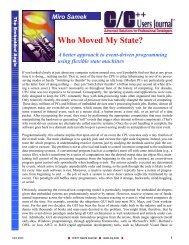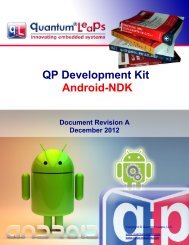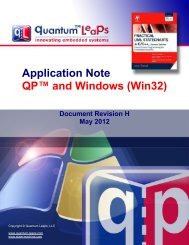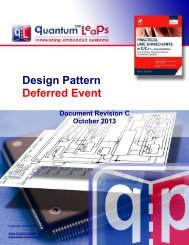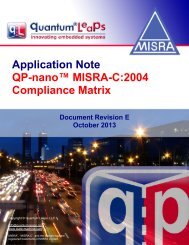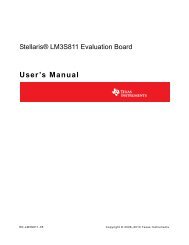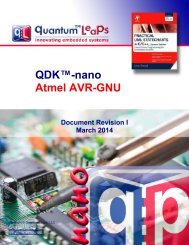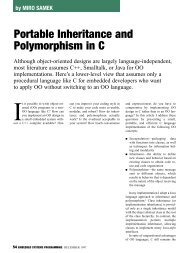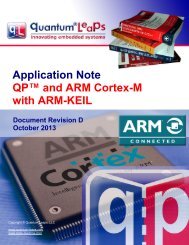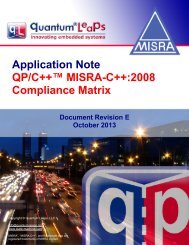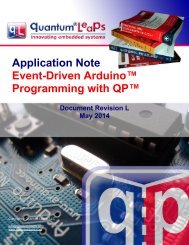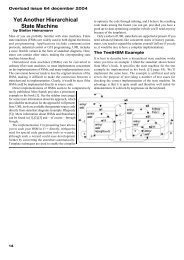QDK PIC24/dsPIC-XC16 - Quantum Leaps
QDK PIC24/dsPIC-XC16 - Quantum Leaps
QDK PIC24/dsPIC-XC16 - Quantum Leaps
Create successful ePaper yourself
Turn your PDF publications into a flip-book with our unique Google optimized e-Paper software.
<strong>QDK</strong><br />
<strong>PIC24</strong>/<strong>dsPIC</strong>-<strong>XC16</strong><br />
www.state-machine.com/pic<br />
1.2 About QM<br />
QM (QP Modeler) is a free, cross-platform, graphical UML modeling tool for<br />
designing and implementing real-time embedded applications based on the<br />
QP state machine frameworks. QM is available for Windows, Linux, and<br />
Mac OS X. QM provides intuitive diagramming environment for creating good<br />
looking hierarchical state machine diagrams and hierarchical outline of your<br />
entire application. QM eliminates coding errors by automatic generation of<br />
compact C or C++ code that is 100% traceable from your design. Please visit<br />
state-machine.com/qm for more information about QM.<br />
1.3 About this <strong>QDK</strong><br />
This <strong>QDK</strong> provides working examples of code running under both the cooperative Vanilla kernel and the<br />
preemptive QK kernel. The example code is based on the Dining Philosopher Problem (DPP) sample<br />
application described in Chapter 7 of [PSiCC2] as well as in the Application Note “Dining Philosopher<br />
Problem” [QL AN-DPP 08] (included in the example code distribution).<br />
The entire source code included with this <strong>QDK</strong> can be edited manually in a traditional code editor.<br />
However, significant parts of the code have been generated automatically by the QM modeling tool<br />
from the dpp.qm model file included in the <strong>QDK</strong>. The preferred way of developing QP applications is to<br />
make all the changes in the model and generate the code automatically.<br />
Figure 3: The example model opened in the QM modeling tool<br />
NOTE: The significant parts of the source code (files dpp.h, philo.c, and table.c) have been<br />
generated by the QM modeling tool from the dpp.qm model, which is the same for the Vanilla and<br />
QK versions of the DPP application. These files can be edited by hand (after unchecking the readonly<br />
property), but the changes made at the code level won't be incorporated back into the model.<br />
Copyright © <strong>Quantum</strong> <strong>Leaps</strong>, LLC. All Rights Reserved.<br />
3 of 35



